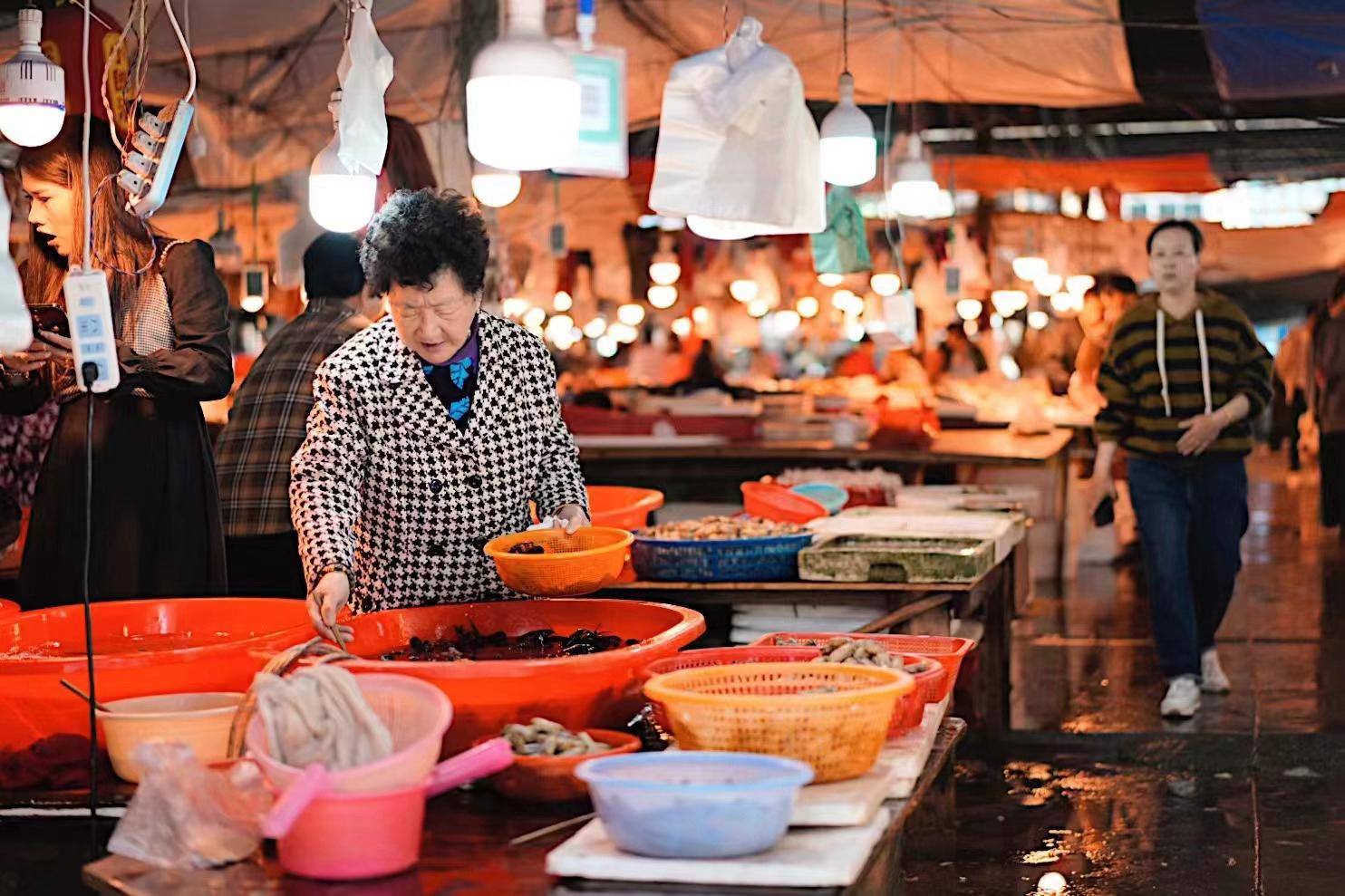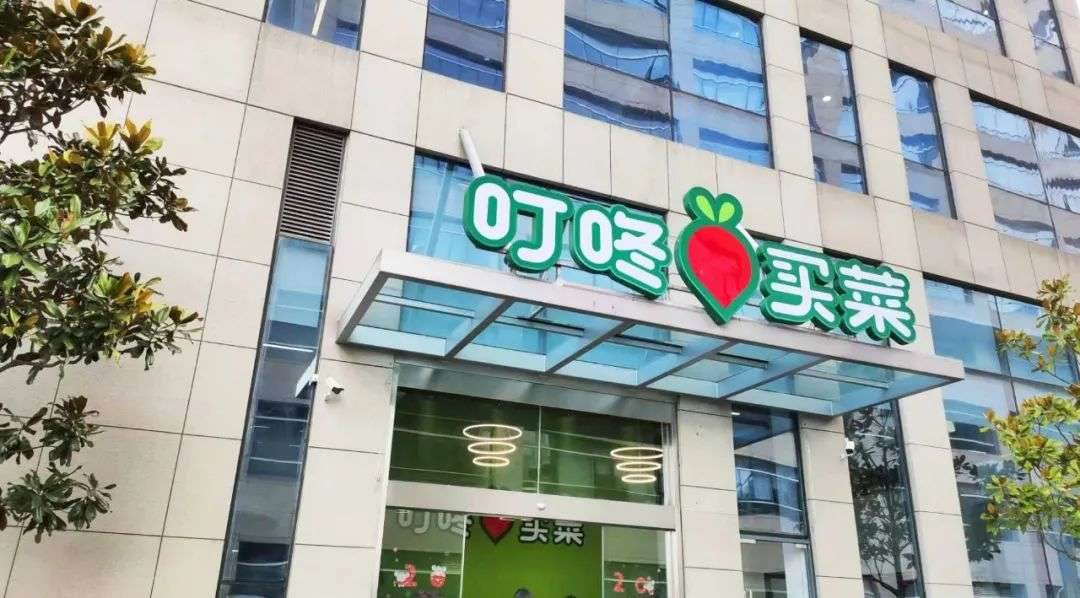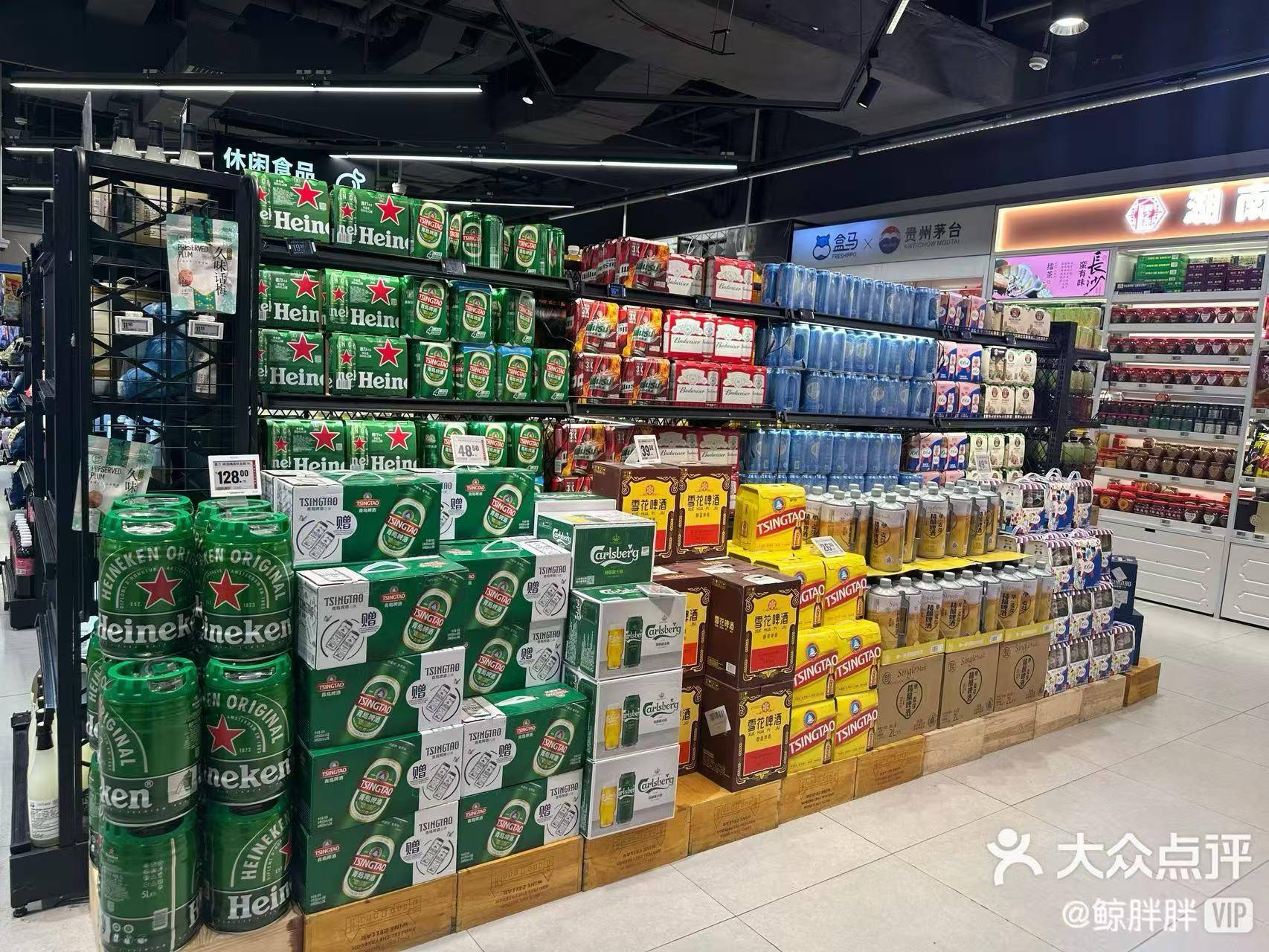"Grand Narrative Disease" of Online Grocery Shopping
![]() 10/24 2024
10/24 2024
![]() 463
463

(Image: Little Red Book/Lin Zhiyi)
Article | Mantis Observer
After 6 years, 2 months, and 17 days, Zhou Bin finally made up his mind on his 50th birthday to abandon his vegetable stall at the farmers' market downstairs in a community in Changsha.
It was August 30th. Like every other day, Zhou Bin returned to the stall around 2 am after restocking from the wholesale vegetable market. His wife helped him sort and neatly arrange the vegetables, and then they went home to catch some sleep before returning to the stall around 6 am to greet the first wave of customers.
Typically, farmers' markets experience two peak retail hours: morning and afternoon. However, in the past two years, Zhou Bin has no longer experienced the rush of selling out his stock.
On his 50th birthday, hoping to take a few hours off, he deliberately did not overstock.
But fate seemed to either grant him a rest or undermine his business. It rained heavily that morning, and only a handful of elderly regular customers ventured out to shop. The younger generation either stocked up at warehouse supermarkets or ordered instant deliveries online.
This has been the crux of Zhou Bin's declining business over the past two years.
With the emergence of stores like Freshippo, Qian Dama, and Caidaquan around the farmers' market, Zhou Bin realized that simply doing his best was no longer enough. He had to look beyond his stall. However, the ever-changing world left him feeling both unable and unwilling to keep up.
Zhou Bin made his decision, and his wife did not object. The couple had discussed this idea earlier in the year but had been hesitant to commit. On one hand, they didn't know what other livelihood they could pursue if they gave up their stall. On the other hand, they hoped to hold on until someone took over their stall, earning them a transfer fee.
Zhou Bin rented his stall when the farmers' market was built and had operated it for over five years. It was reasonable to charge a few tens of thousands of yuan as a transfer fee, as evidenced by a nearby seafood stall that sold for 50,000 yuan.
The transfer listing had been up for over half a year, with inquiries but no takers. So, on his 50th birthday, Zhou Bin decided not to delay any longer.
Zhou Bin's story is not unique but rather a microcosm of individual farmers who have not yet transitioned.
The internet loves to add value to every industry, and the fertile ground of fresh produce is no exception. The fresh produce supply chain, which has evolved over 30 years through wholesale markets, distribution centers, regional hubs, supermarkets, community markets, and farmers' markets, is being restructured.
From Burning Cash to Cutting Losses
At the 2nd NetEase Future Tech Summit in 2015, Xu Xin, the founder of Capital Today, boldly stated, "E-commerce only accounts for 10% of total retail sales, while the remaining 90% is fresh produce. Therefore, whoever controls fresh produce will rule the market!"
Every player entering this race painted a vivid picture of their story. Whether it was the dark store models of Dingdong Maicai, Missfresh, and Delailuo, the warehouse-store integration of Hema and Yonghui, or the community group-buying models of Meituan Youxuan, Pinduoduo Maicai, and Xingsheng Youxuan, they all painted a bright future in their narratives.
As a necessity in daily diets, fresh produce boasts trillions in total value, rigid demand, and high purchase frequency, underpinning the logic behind various online grocery shopping stories.
During this period, players pursuing various models and investors attracted to different stories all placed the high frequency and rigid demand of fresh produce into their traffic models, projecting explosive growth. Once the powerful traffic-drawing effect of fresh produce was activated, other categories also became imaginative.
Who wouldn't be excited by such an enticing model? Hot money and big money followed the trend. Investors with the ability to throw around small fortunes hoped to create a killer fresh produce startup project with their superior resources. For example, Capital Today invested in Dingdong Maicai, Yipin Shengxian, Xingsheng Youxuan, and Linlinyi, while Hillhouse Capital invested in Aixianfeng, Delailuo, and Meicai.
Some of the hottest players in the race, like Dingdong Maicai, received eight rounds of investment within two years of its establishment. Missfresh, after its inception, raised funds almost every six months. Delailuo's founder Li Yang even frequently boasted at staff meetings that "Delailuo lacks everything but money."

(Image: National Business Daily)
However, just after appearing on Hurun China's list of potential unicorns in the second quarter of 2019 alongside Dingdong Maicai, Delailuo collapsed in November that year due to its rapid expansion outpacing its funding pace.
At the time, Delailuo had covered 19 cities across Anhui, Jiangsu, Henan, and Hubei, with over 1,000 stores serving tens of thousands of communities. Despite claims of having "plenty of money," Delailuo's downfall seemed sudden but was long overdue due to its overexpansion.
Capital wants quick returns. With millions invested and no signs of profitability in sight, timely losses became necessary. Even industry leader Missfresh suffered a net loss of 2.909 billion yuan on revenue of 6.001 billion yuan in 2019.
By the end of 2019, online fresh produce players deeply felt the shift from being cherished to being discarded.
Statistics show that out of over 4,000 players that rushed into the online fresh produce market, only 1% achieved profitability, 4% broke even, and 95% incurred losses. It was as if a towering edifice built with real money crumbled into ruins.
Although the subsequent COVID-19 pandemic reignited hope for a second spring, most small players had already lost their chance to compete.
Meanwhile, players like Missfresh, Dingdong Maicai, and Xingsheng Youxuan, after brief spurts of growth, eventually returned to the challenging reality of the fresh produce business as the pandemic subsided: Missfresh delisted, Dingdong Maicai and Xingsheng Youxuan significantly downsized...
After navigating turbulent waters but ultimately failing to avoid collapse, Xu Zheng, the founder of Missfresh, concluded, "Bent over to pick up pennies."
Improving technology and efficiency in a trillion-dollar market that never fades will inevitably cause significant disruptions in the industry landscape. The 2019 "rollercoaster" market was the first such disruption, with survivors moving forward and failures buried.
Although survivors have refined their models into dark stores, warehouse-store integration, community group buying, and platform-to-home delivery, their current situations remain grim. Hema continuously "transforms," Dingdong Maicai "settles" in East China, Xingsheng Youxuan retreats to Hunan, Hubei, and Jiangxi, and Xiaoxiang Supermarket (formerly Meituan Maicai) and Pinduoduo Maicai haven't reached profitability yet...
Cost, Experience, and Profit Remain an "Impossible Triangle"
In the seemingly fertile soil of fresh produce, players must "bend over to pick up pennies." The traditional path of burning cash for traffic, which has worked wonders in other industries, failed miserably in fresh produce due to its high investment, high wastage, and low prices.
Why haven't advanced internet models with money, people, technology, and management been able to integrate fresh produce into the Internet+ landscape, as they have with industries like food delivery and ride-hailing?
Enthusiastic entrants who once saw limitless potential in the traffic model may not have carefully calculated the costs and experience improvements.
A Citic Securities report revealed that traditional offline fresh produce distribution chains involve multiple intermediaries and layers of markups, leading to inefficiencies. From producers to sellers in farmers' markets, first-tier cities typically involve about four intermediaries, with even more in lower-tier cities.
Yet, this seemingly inefficient chain, which could be transformed by the internet, ensures profitability at every link from farmers to consumers.
To meet demand for high-frequency fresh produce with stable quality and price sensitivity, traditional farmers' market vendors, like Zhou Bin, operate as husband-and-wife teams, waking up early to source produce and setting up stalls before 6 am to compete for freshness and squeeze out meager profits. Each upstream link similarly layers costs and spreads them thinly to reach profitability.

To enter this market, e-commerce players must expect to burn cash for scale and subsidies for users before tackling the supply chain.
Despite burning cash, the traffic model fails to run smoothly because the grocery shopping experience hasn't improved significantly.
Shopping in supermarkets or farmers' markets allows for picky selection, down to individual potatoes and onions. Online orders, while convenient, offer limited product options and standardized sizes. Community group buying offers cheap prices but limited product choices due to subsidies.
For price-sensitive, diverse fresh produce without brand effects or product premiums, burning cash can generate temporary traffic but struggles to cultivate user habits. To maintain competitive terminal prices, supply chain efficiency must improve.
However, public data shows that China has yet to establish a complete and independent cold chain logistics system, with a comprehensive cold chain circulation rate of only 19%.
Few players can afford the heavy lifting of building warehouses, logistics, and cold chain systems. It's common to read that it took SF Express 24 years to figure out how to transport cherries efficiently.
Other data reveals that approximately 90% of meat, 80% of aquatic products, and large quantities of milk and soy products are still transported and sold without cold chain guarantees. As a result, agricultural products have a relatively high spoilage rate, with fruits and vegetables alone losing over 100 billion yuan annually.
This doesn't account for operational costs like determining how many leaves to remove from a bruised vegetable to reduce waste while still selling it.
Marginal costs are difficult to calculate precisely, scale effects fail to dilute operating costs, and consumer experience hasn't significantly improved due to technological advancements. While capital can withdraw after burning cash, the wreckage of failed players and countless farmers persists, requiring struggling survivors to keep throwing stones and waiting patiently for a response.
Is "Fresh Produce + Groceries" the Ultimate Form of Online Grocery Shopping?
Today's survivors of the online grocery shopping carnage have become more rational and down-to-earth, no longer obsessed with models but focused on operations, with the core goal of optimizing supply chains, products, and operational capabilities to reduce costs and enhance profitability.
Their efforts converge on expanding product categories, deepening self-operation, and optimizing supply chains.
The only two national players left in community group buying, Pinduoduo Maicai and Meituan Youxuan, have shifted from competing on delivery speed and product variety to reducing losses and seeking profitability by adding high-margin daily chemical and grocery items.
Hema, which has been continuously adjusting and expanding with frequent and diverse new initiatives, has started differentiating its offerings based on consumption habits in different cities and regions, providing products and services tailored to local needs. This includes expanding baking areas, setting up "light meal islands," and increasing semi-finished dishes and frozen fresh produce to cater to diverse consumer lifestyles.
While maintaining its strength in fresh produce, Dingdong Maicai continuously adds non-fresh categories like baking, snacks, groceries, dairy products, and beverages to enrich its product line and meet consumers' one-stop shopping needs.
In terms of private labels, Hema has Hemafresh, Hemaworkshop, and Hema Organic, covering fresh produce, cooked food, and baking. Dingdong Maicai has launched private labels like Dingdong Good Times, Dingdong Signature Dish, Dingdong Grand Slam, and Cai Changqing, spanning pre-cooked meals, meat, rice and noodles, and soy products. Meituan also has its own brands like Xiang Dachu and Xiang Youxuan.
Each has achieved notable results. For example, Hema's private labels generated over 20 billion yuan in sales in the first half of this year, encompassing various vertical categories.
The success of private labels is closely tied to players' efforts to develop direct sourcing from production areas, delve into high-quality agricultural origins, and strengthen supply chain development and optimization.
Dingdong Maicai provides diverse fresh produce through direct sourcing and supply chain operations. Its vegetable category stands out with rich variety, seasonal offerings, and differentiation. Hema expands its direct sourcing bases globally to ensure product quality and establishes a robust cold chain logistics system to maintain freshness during transportation.
Everything seems to be looking up. Players who survived the carnage have inevitably transformed into online supermarkets. This aligns with investors' initial expectations for online grocery shopping.
According to LatePost, as of March 2023, fresh produce accounted for 50%-60% of Dingdong Maicai's sales, while Meituan Maicai and Popomart's product mix was roughly 30% fresh produce and 50% standard goods.
The product mix of fresh produce for traffic and standard goods for profitability may emerge as the standard model at this stage.
This is understandable. Standardizing and scaling fresh produce is challenging and can't be solved overnight with significant investments. Surviving players seeking long-term profitability must expand beyond fresh produce into non-perishable foods and daily necessities. Staying afloat and on the table is essential before talking about development and the future.

Dingdong Maicai is a testament to this strategy. Its financial reports show that while fresh produce accounts for only 37.5% of its 20,000 SKUs, its private label GMV, dominated by pre-cooked meals, has risen to 20%. Adjusting its product mix timely, Dingdong Maicai has achieved seven consecutive quarters of profitability.
Moreover, the once-discredited dark store model, revitalized by Dingdong Maicai's turnaround, has become attractive to major players, with some even arguing that it has emerged as a new retail format.
Replacing quantity with quality has redefined the industry's development logic, finally bringing order to the chaotic online grocery shopping landscape marked by land grabs and traffic competitions. While the livelihoods of many farmers and husband-and-wife grocery stores have been disrupted by the internet's financial might, with fresh produce used for traffic and standard goods for profitability, at least Hema's fresh produce is indeed good, Dingdong Maicai's vegetables are indeed fresh, and community group-buying platforms do offer "wool" with "prices that speak for themselves."
As players continue to expand product categories and restructure industry value chains, it remains to be seen whether they will elevate every link in the chain or recreate a toll-taking industry monopoly.
Of course, it's still early.
Does grocery shopping really need to be revolutionized by the Internet?
No one can resist the tide of the times. The difference is that the capable ones swim in the midstream, the ordinary people drift with the current, and the aphasic people are silenced and drowned.
When society eagerly cheers for the technological express train that roars towards a better future, everyone will feel that there must be a seat for them in the carriage. Only when the train starts, we suddenly realize that there is always a part of people who must be left behind to bear the cost of progress of the times.
In particular, no one has a fixed seat on the train of the times.
Yonghui Supermarket, BBK Supermarket, RT-Mart, and other well-known names used to be capable players in the era of hypermarkets, but when new retail, front-end warehouses, and community group purchases threaten their livelihoods, there is no room for negotiation. Therefore, BBK announced bankruptcy, RT-Mart became an abandoned child, and Yonghui, which is still struggling, "called for help" from Donglailai...
When faced with Internet giants using technological change and industry renewal as a banner and investing billions of dollars to compete for their livelihoods, these once capable players were unable to resist, let alone the vegetable farmers who struggled in the fields.
China Merchants Securities has a set of vendor portraits in vegetable markets that show that the ages of most vegetable market vendors are between 35 and 55 years old, with vendors in lower-tier cities tending to be younger. Almost all vendors in vegetable markets in first-tier cities are migrant workers, while vendors in lower-tier cities are generally residents from nearby towns who come to the city to do business.
In other words, along the fresh food supply chain, from farms to wholesale markets and then to farmers' markets, large and small merchants, traders, and stall owners are basically ordinary people at the bottom of society. They may be your parents, relatives, or friends, working hard from dawn to dusk to support their families. They may not necessarily benefit much from technological advancements and industrial upgrades, but they are certainly the direct bearers of the costs.
Don't vegetable farmers know to seek change?
Zhou Bin, 50, said, "My son works in the Internet industry. The day he lost his job, I learned a new term: being optimized. My stall may have also been optimized by the market.""So, when people celebrate the progress of the times, have they ever considered whether the problem lies with ordinary people's reluctance to change or with the unscrupulous methods employed by giants to redistribute the pie?
As Zhou Bin put it, he could indeed choose to try to change, perhaps by becoming a group leader or joining a fresh food supermarket. However, whether he runs his own stall or becomes a part of the Internet-transformed grocery shopping experience, it doesn't actually affect the consumer's grocery shopping experience. But the rules of his own interest distribution have changed, from being a stall owner working for himself to becoming a cog in the wheel of the Internet economy.
'I'm getting old and don't want to work for others anymore. The Internet has already optimized my son and me once, and I'm not going to do it again.'""It's hard to say how many Zhou Bins need to be buried in order for a great Internet grocery shopping enterprise to emerge. Even more pessimistic is the fact that history has proven that people will only cheer for the likes of Qin Shi Huangdi, who unified China, and no one cares about the countless lives lost in the process.
Jia Zhangke emphasized, "When a society rushes forward, it cannot ignore those it collides with in its haste to move ahead.""Who's going to listen if it doesn't make money?""In the grand narrative of technological progress, sometimes being old, outdated, or slow is a sin.
*All images in this article are sourced from the internet.





